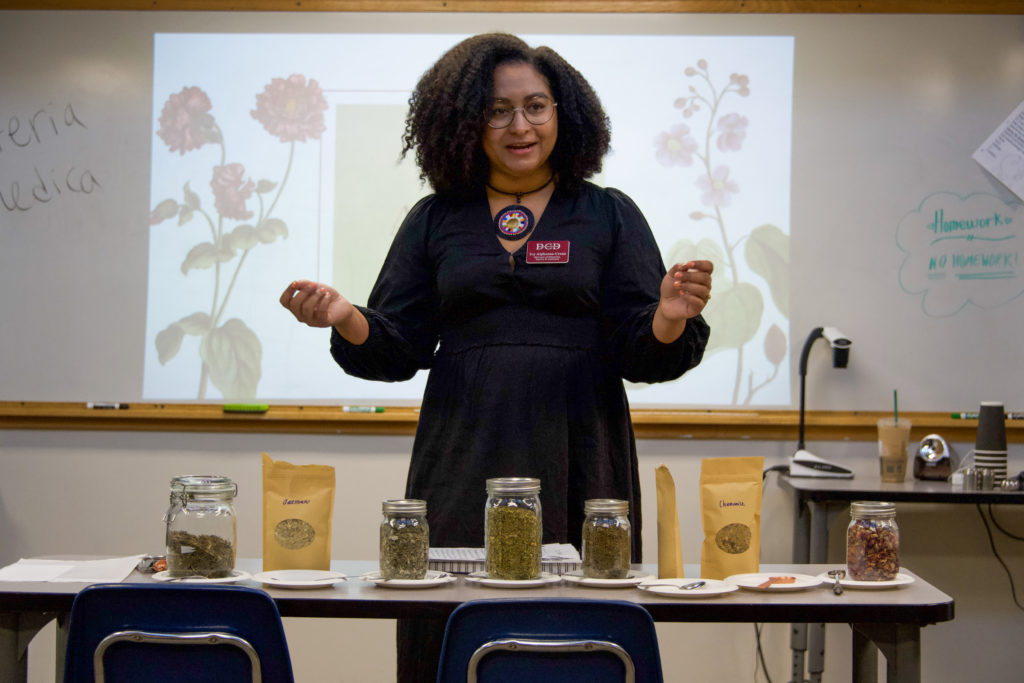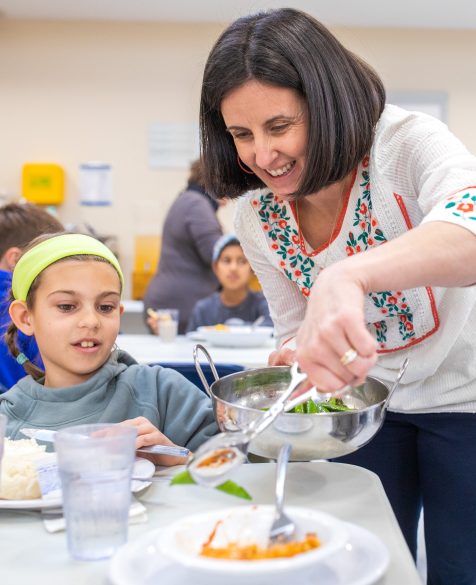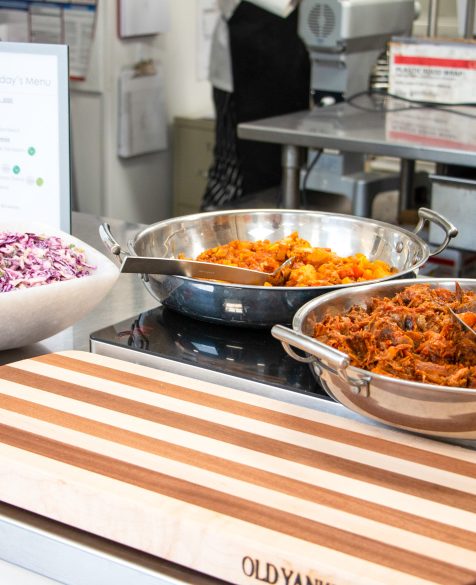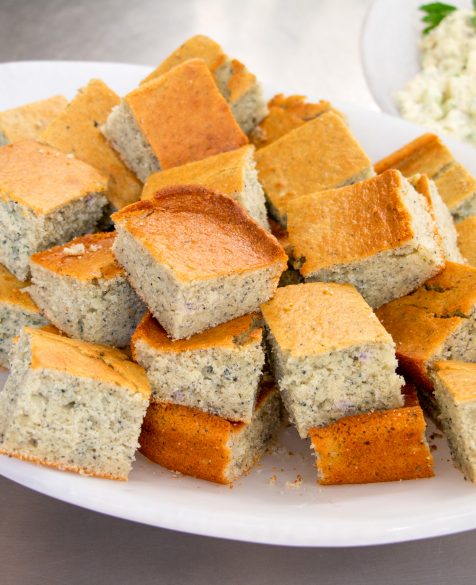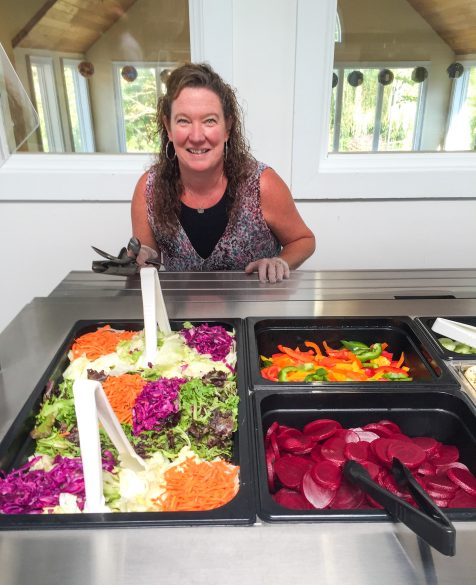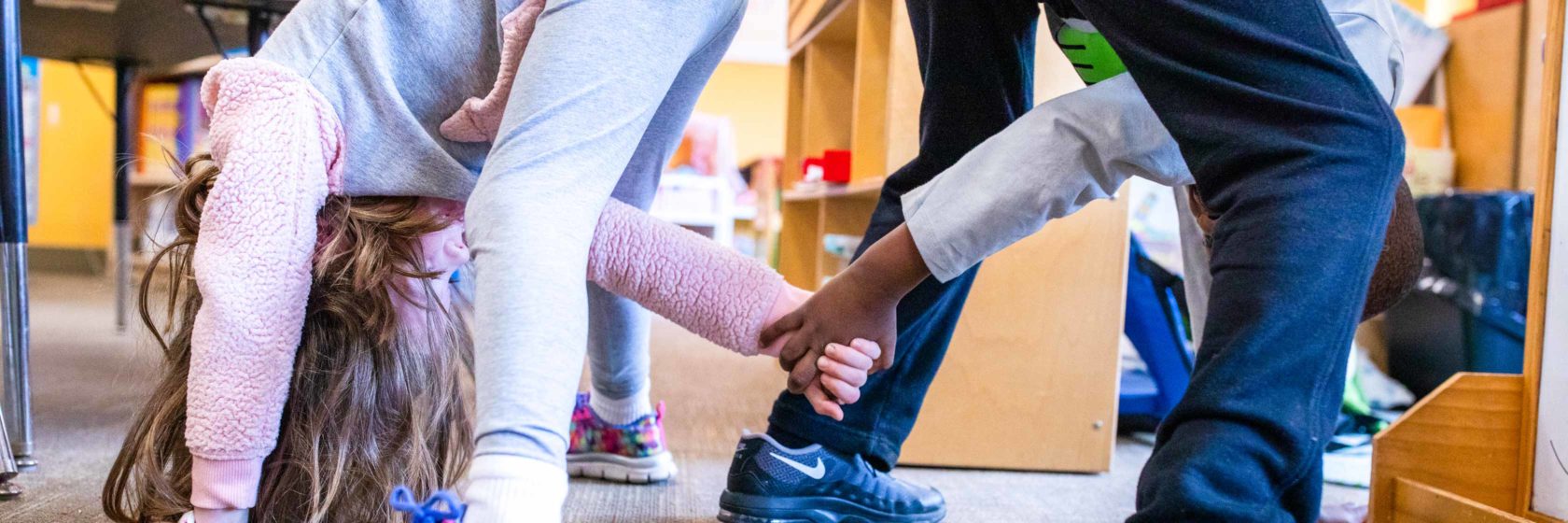
Health & Wellness
Eat. Play. Learn.
Healthy minds, bodies, and spirits make whole children. So we approach nutrition and mindfulness to take care of children in all three ways and support their long-term well-being.
Food and Friendship
Whether it’s snack time or lunchtime, we make sure children have the chance for conversation and connection. We serve lunch family-style, three times a day, in our cafeteria, “The Lawrence Room” and provide healthy mid-morning snacks in the classroom. At lunch, we put children from different grades at each table so they can connect and make friends outside the classroom.
- Pre-kindergarten students bring their own lunches and stay in Huntington House with their teachers for a smaller, cozier experience.
- Students in the lower grades sit with a faculty member at mixed-grade tables, which change monthly to foster new friendships.
- In Middle school, students have learned the benefits of mingling during mealtime and connect with each other during that time.
Lunch Groups
- 11:30 am to 12:00 pm: Grades K-2
- 12:15 pm to 12:45 pm: Grades 3 – 5
- 1:10 pm to 1:40 pm: Grades 6 – 8
A Fresh Start
Cooking from scratch with locally-sourced and fresh ingredients, our lunch crew prepare a balanced healthy hot meal selection, a hot vegetarian selection, a signature sandwich, soup, along with a full salad bar with items changing daily. There is always a selection of bread and cereal for picky eaters!
Allergy Alert
To support our students and staff members with significant food allergies, we:
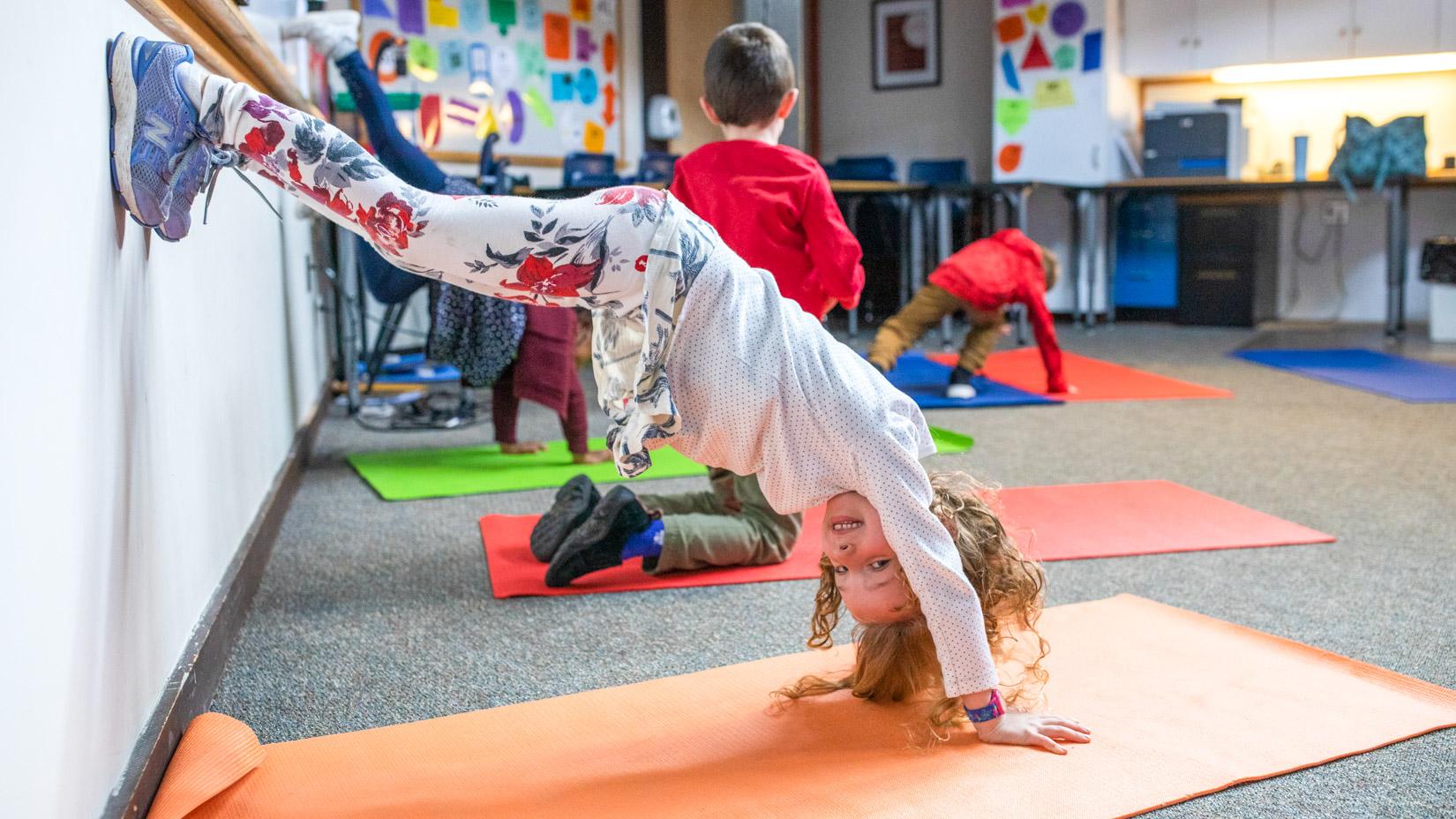
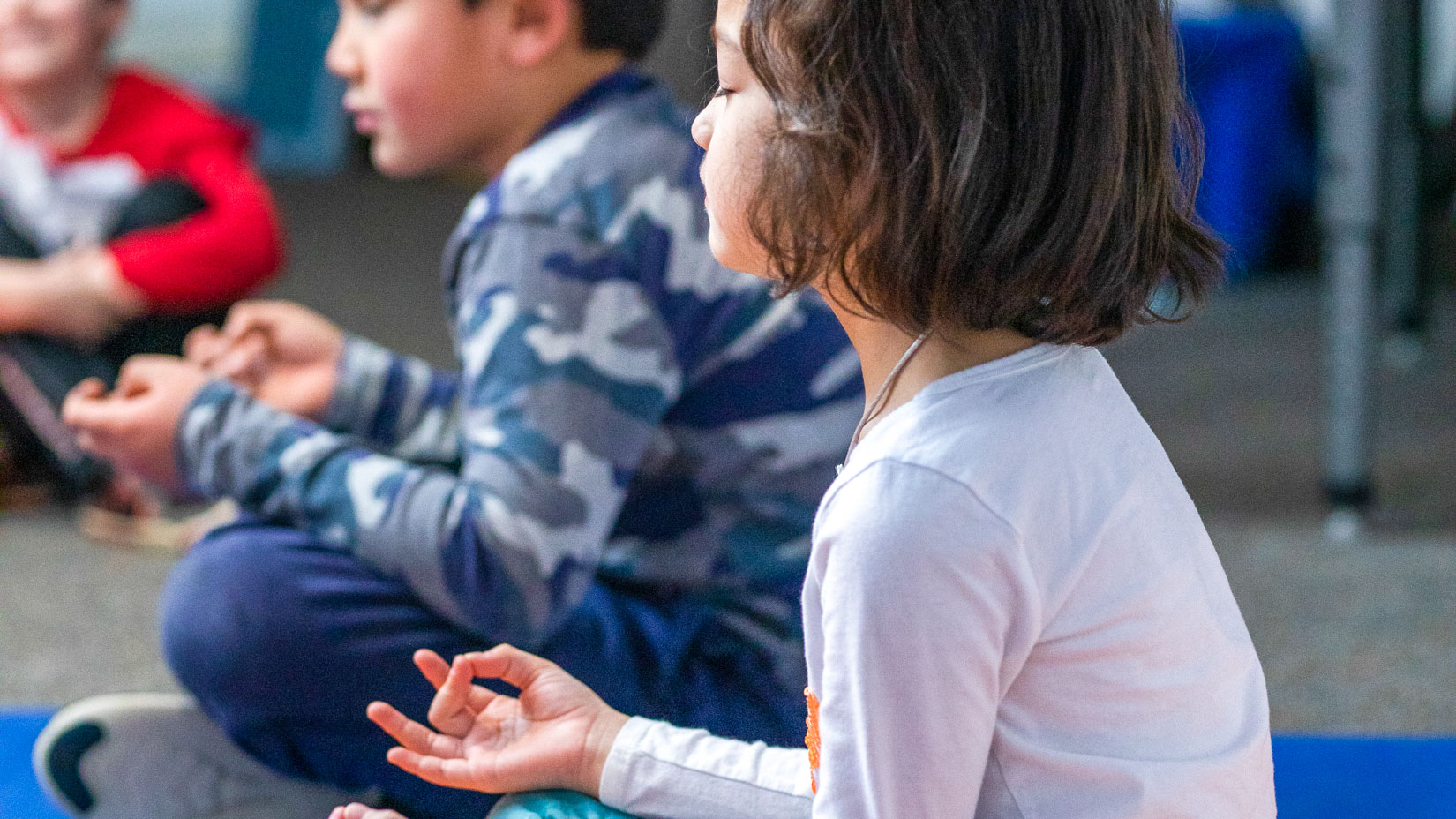
Mindfulness Matters
Knowing our strong, connected community relies on the social and emotional well-being of students and adults at DCD, we created and implemented “DCD Wellness,” a collaborative program of mindfulness-based social-emotional learning (SEL). Social-emotional competencies are defined by the Collaborative for Academic, Social, and Emotional Learning (CASEL), which is a nationally recognized collaborative that promotes equity and excellence in education through social and emotional learning.
Created by our dedicated mindfulness coach and our school psychologist, this curriculum includes weekly classroom visits that help children develop mindfulness through breathing exercises, movement, and thought patterns as well as through activities centered around social-emotional competencies. The goal of these sessions is to give students tools and strategies to help them develop self-awareness, self-management, social awareness, relationship skills, and a capacity for responsible decision-making.
Grown-Ups Grow, Too
Since we can all benefit from developing mindfulness skills and competencies, we invite our faculty and staff to a weekly morning mindfulness community, which includes meditation on a theme and open discussion, as well as Yoga and the Walking Club.
